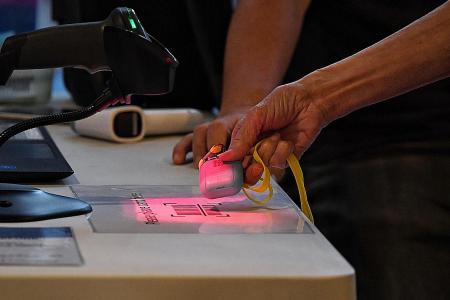Proposed law to strictly limit use of contact tracing data
Contact tracing data is reserved strictly for the fight against the coronavirus and investigations into the most serious crimes, under proposed legal changes that will override all other legislation.
This means that public agencies cannot cite other laws to compel the use or disclosure of the personal data. It can be used only for tracing contacts to combat the pandemic or for investigations into very serious crimes such as murder and terrorism.
The proposed law follows an outcry after it emerged that the police could obtain TraceTogether data for criminal inquiries.
BILL
Called the Covid-19 (Temporary Measures) (Amendment) Bill, it protects information including that of nearby contact tracing device users, the places people visited and personal information such as their names, identification numbers and contact details.
The Bill was introduced in Parliament yesterday by Foreign Minister Vivian Balakrishnan on a Certificate of Urgency. This means that the proposed law is urgent enough to be put through all three readings in one parliamentary sitting, instead of separate sessions.
The Bill also stipulates that any unauthorised use or disclosure of personal contact tracing data is an offence. Those found guilty of flouting the rule can be fined up to $20,000, jailed for up to two years or both.
The changes follow a backlash after Minister of State for Home Affairs Desmond Tan revealed on Jan 4 that the Criminal Procedure Code allowed the police to obtain any data under Singapore's jurisdiction for criminal investigations, including TraceTogether data.
It appeared to contradict statements the Government made last year that TraceTogether data would be used only for contact tracing to tackle the pandemic.
The seven types of serious crime listed in the Bill (see graphic below) cannot be changed without Parliament's approval. The Ministry of Home Affairs said that within the police, all requests for contact tracing data must be approved by the Criminal Investigation Department.
Yesterday, the Smart Nation and Digital Government Office said contact tracing must continue to be done well so that Singapore can manage the Covid-19 crisis successfully.
Parliament will debate the Bill today. If passed, the amendments to the law are expected to come into force in the middle of this month.
Seven types of serious crimes the Bill covers
Under a proposed law, the police and other law enforcement agencies can exercise powers under the Criminal Procedure Code, or other written laws, to use personal contact tracing data for only investigations or criminal proceedings into seven categories of serious offences:
Unlawful use or possession of corrosive and explosive substances, firearms or dangerous weapons.
Terrorism-related offences under the Terrorism (Suppression of Bombings) Act, Terrorism (Suppression of Financing) Act, and Terrorism (Suppression of Misuse of Radioactive Material) Act.
Crimes against people where the victim is seriously hurt or killed, such as murder, culpable homicide not amounting to murder and voluntarily causing grievous hurt, where the victim's injury is of a life-threatening nature.
Drug trafficking offences in which the penalty is death.
Escape from legal custody where there is reasonable belief that the subject will cause imminent harm to others.
Kidnapping, abduction or hostage-taking.
Serious sexual offences such as rape and sexual assault by penetration.
Get The New Paper on your phone with the free TNP app. Download from the Apple App Store or Google Play Store now


